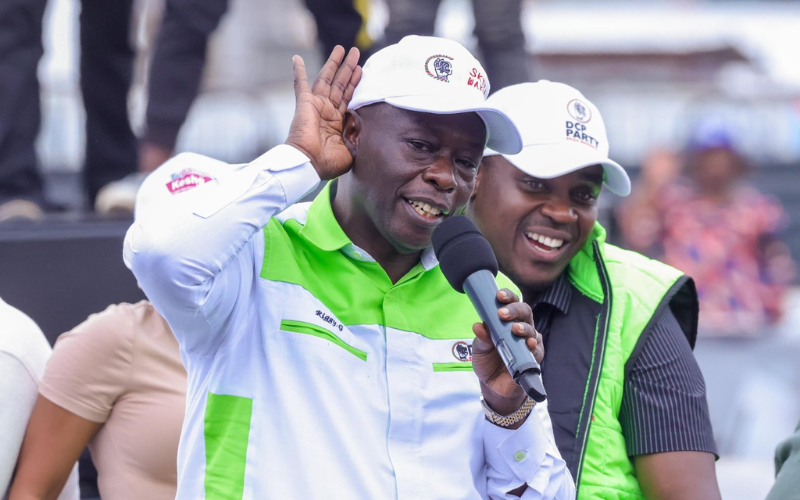- Gachagua’s “cousins” comment may seem small to some, but it’s a symptom of a much bigger disease: a political culture that thrives on division, not unity.
In a country where unity is enshrined in the national anthem and the Constitution declares Kenya a sovereign nation of equal citizens, former Deputy President Rigathi Gachagua’s recent remarks claiming that certain communities are “cousins” has stirred deep concerns about the worsening state of Kenyan politics.
His words were not just casual banter — they were a blatant appeal to tribal loyalty, disguised as kinship. In a time when Kenya desperately needs issue-based politics, Gachagua’s statement is a painful reminder of the ugly tribal arithmetic that has poisoned leadership, governance, and national unity.
Kenyan politics has always had tribal undertones, but recent years have seen a dramatic escalation. Instead of moving towards issue-based leadership, many politicians are entrenching ethnic blocs and manipulating communities for electoral gain.
Gachagua’s 'we are cousins' comment is a strategic dog whistle — sending a signal to his base that tribal allegiance matters more than national interest.
This is not new, but it is dangerous. When leaders use tribal identities as political tools, they breed division, resentment, and in some cases, violence. It undermines democracy and creates ethnic kingpins instead of national statesmen.
Read More
Gone are the days when politicians were judged by their vision or policies. Today, allegiance to a tribe or region has become the golden ticket to power. The conversation has shifted from healthcare, education, and corruption to who eats what, who gets what post, and who supports who based on tribal links.
Gachagua’s comments perfectly capture this regression. His message suggests that governance is no longer about competence but tribal inheritance. That’s a betrayal of the millions of young Kenyans who want a future built on merit, not tribal math.
As the 2027 election draws closer, political temperatures are already rising. Instead of offering solutions to poverty, unemployment, and debt, politicians are laying the groundwork for ethnic mobilization. It's a dangerous game — one Kenya has played before, and paid for dearly.
If unchecked, this kind of rhetoric can erode national identity, fuel hate, and plunge the country into chaos. Kenya cannot afford another post-election crisis born out of tribal propaganda.
The silence from many leaders in the wake of Gachagua’s remarks is deafening. Few are willing to challenge the status quo, fearing political backlash or loss of tribal support. But Kenya does not need cowards — it needs courageous patriots who will speak out, even when it’s unpopular.
Young Kenyans, the most affected by bad leadership, must reject this tribal circus. The future will not be built by cousins, clans, or co-ethnics — but by visionaries, reformers, and doers.
Gachagua’s 'cousins' comment may seem small to some, but it’s a symptom of a much bigger disease: a political culture that thrives on division, not unity. Kenya cannot move forward while its leaders cling to tribal anchors.



-1772102940-md.jpg)


-1772090413-1772095461-md.jpg)
-1772094026-md.jpg)

-1772102940-sm.jpg)


-1772090413-1772095461-sm.jpg)